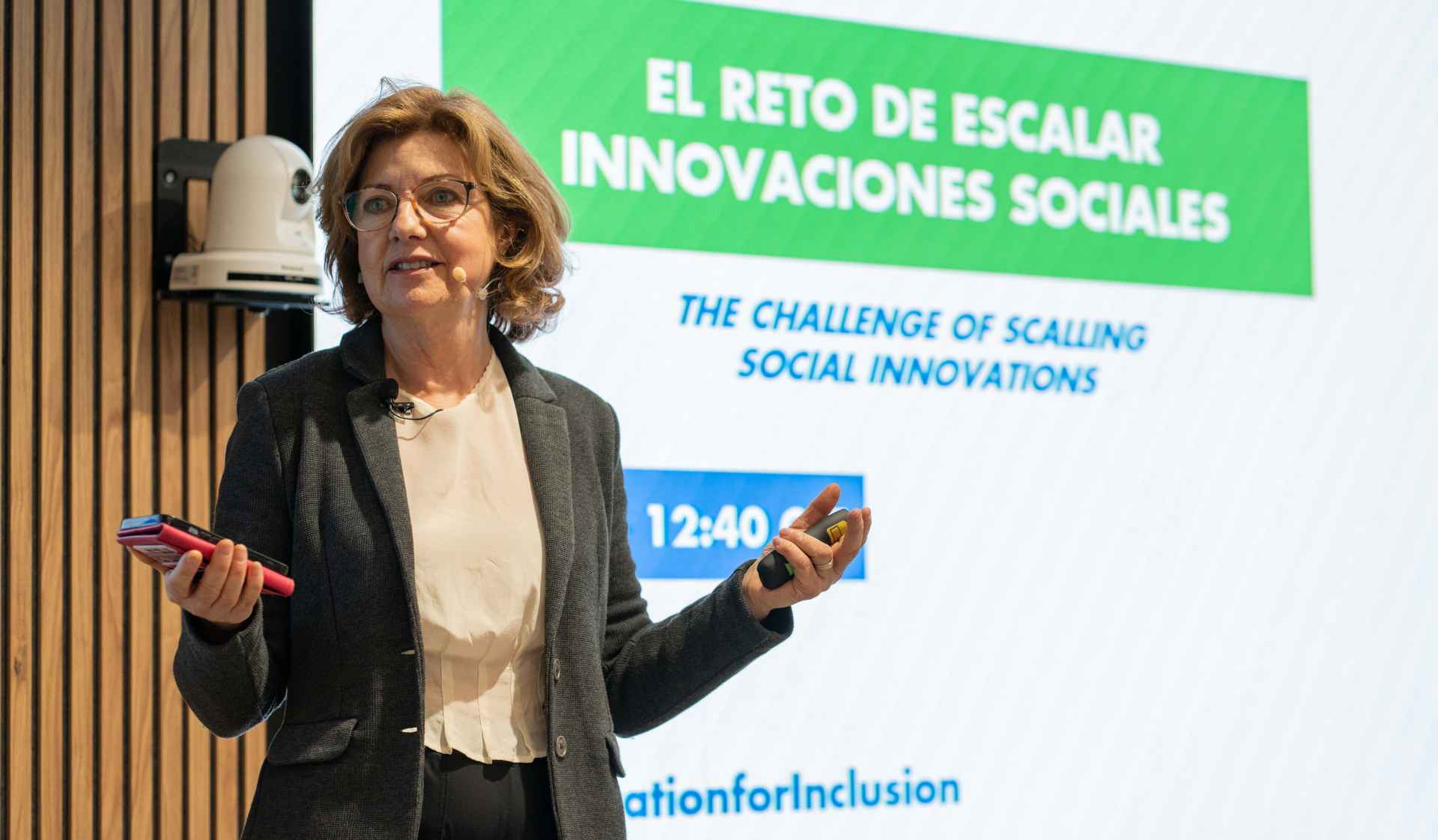

From pilot project to systemic change: How innovative ideas grow
Many of the most transformative projects start small. They begin as an idea, an experiment, or a pilot that improves people’s lives in a local context. But the real challenge comes next: how do you make that innovation grow, replicate, and transform the structures that generate inequality or exclusion?
Scaling social innovation means moving from inspiration to transformation. It’s not just about expanding the reach of an initiative—it’s about ensuring its results influence public policies, institutions, and communities, generating real and sustainable systemic change.
What does it mean to scale social innovation?
The European Union defines social innovation as a social activity “in both its objectives and means,” based on new ideas, products, or practices that address unmet social needs and create new relationships across sectors. In practice, this means designing and implementing new solutions (services, policies, products, or models) that respond to social challenges. Yet many of these initiatives remain at the pilot stage: effective in a specific territory or for a specific group, but not consolidated or influential at the system level.
Scaling is the process that allows these solutions to be integrated into broader structures. According to the European Commission’s Scaling-up Social Innovation Toolkit (2022), this process is neither linear nor automatic. There are several pathways:
- Open adoption: when other organizations adopt and adapt a practice.
- Affiliation: when networks of collaboration are formed among actors.
- Branching: when the initiative expands to new places or sectors.
Each pathway requires planning, resources, partnerships, and, above all, a strategy to maintain the project’s essence while amplifying its impact.
Are you interested in learning more about social innovation and the opportunities it offers to drive large-scale transformations? Then the XIII European Forum on Social Innovation Experiences and Trends is for you. Join us on 26 November in Madrid, or follow the event online via YouTube (Spanish) and LinkedIn (English).
Register now
What is systemic change?
The ultimate goal of scaling is not just reaching more people, it is achieving systemic change. This happens when an innovation transforms the way society addresses a problem, reshaping structures, norms, or behaviors in a lasting way. It’s not about replacing what exists but to reorganize the system to make it more effective.
For example, a local initiative that improves employability for vulnerable youth (like the Generación IN Empleo programs) can generate systemic change if it influences public training policies or inspires new collaboration models between governments and social organizations. In other words, systemic change turns a concrete experience into a new way of doing things.
Achieving this requires time, strong partnerships, and a shared vision. It means shifting from isolated projects to ecosystems of change, where public institutions, social organizations, businesses, and communities all act as agents of structural transformation.
Scaling is not only about "doing more"; it’s about transforming. This transformation is only possible when public institutions are actively involved. Their participation provides continuity, legitimacy, and stability. Social organizations and communities contribute the practical knowledge and experience of what works on the ground.
A decisive moment for scaling
Europe is at a crucial juncture as the next programming period of the European Social Fund Plus (ESF+) is starting to take shape, one of the main EU investment tools in social innovation. This transition is a unique opportunity to consolidate learnings, strengthen collaboration among actors, and ensure that projects developed during this period translate into long-term public policies.
Learn more about the pivotal moment we are experiencing
In this context, the European Network for Social Innovation for Inclusion, coordinated by Action Against Hunger, has adopted a new approach. After years of facilitating knowledge exchange and pilot projects, the network now focuses on supporting organizations in scaling their innovative pilots and replicating their most successful solutions.
It is no longer only about designing and piloting innovations; it is about replicating, adapting, and sustaining them across new territories, with the support of public institutions and social actors. The goal is clear: transform results into structural impact, ensure continuity of what works, and strengthen organizations’ capacity to influence the design of more inclusive and effective policies.
Scaling requires listening, adjusting, and learning from other experiences at both local and European levels. This is why spaces for exchange and dialogue, like the European Forum on Social Innovation Experiences and Trends, are essential to progress.
Access all the event information
Register now and secure your spot
On 26 November, the Forum will bring together representatives from public institutions, social organizations, and innovative projects across Europe. It will be an opportunity to reflect on how to scale solutions, share learnings, and collaboratively build a more inclusive and sustainable development model. Because social innovation does not end when a project works, it begins when that project succeeds in changing a system.
